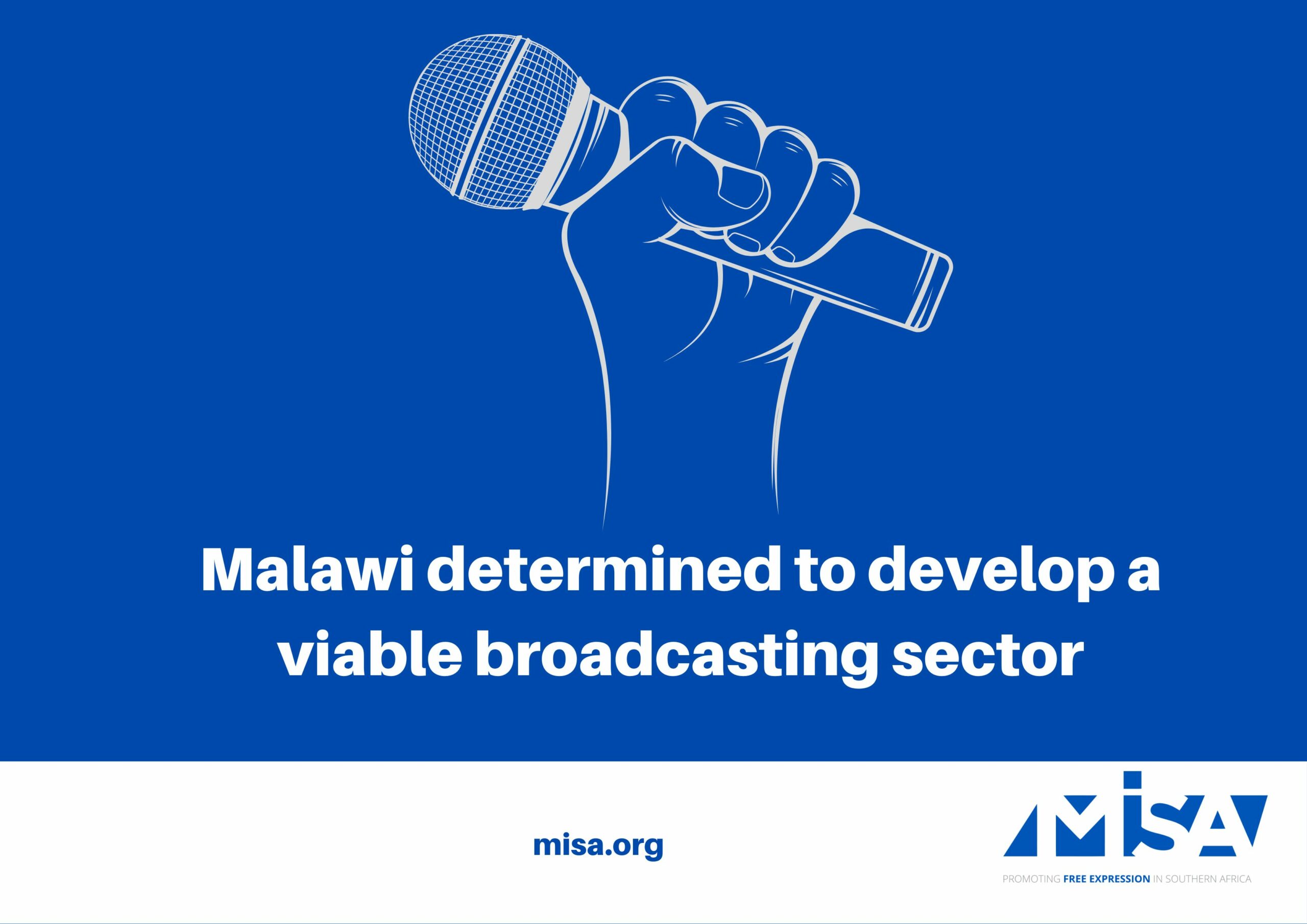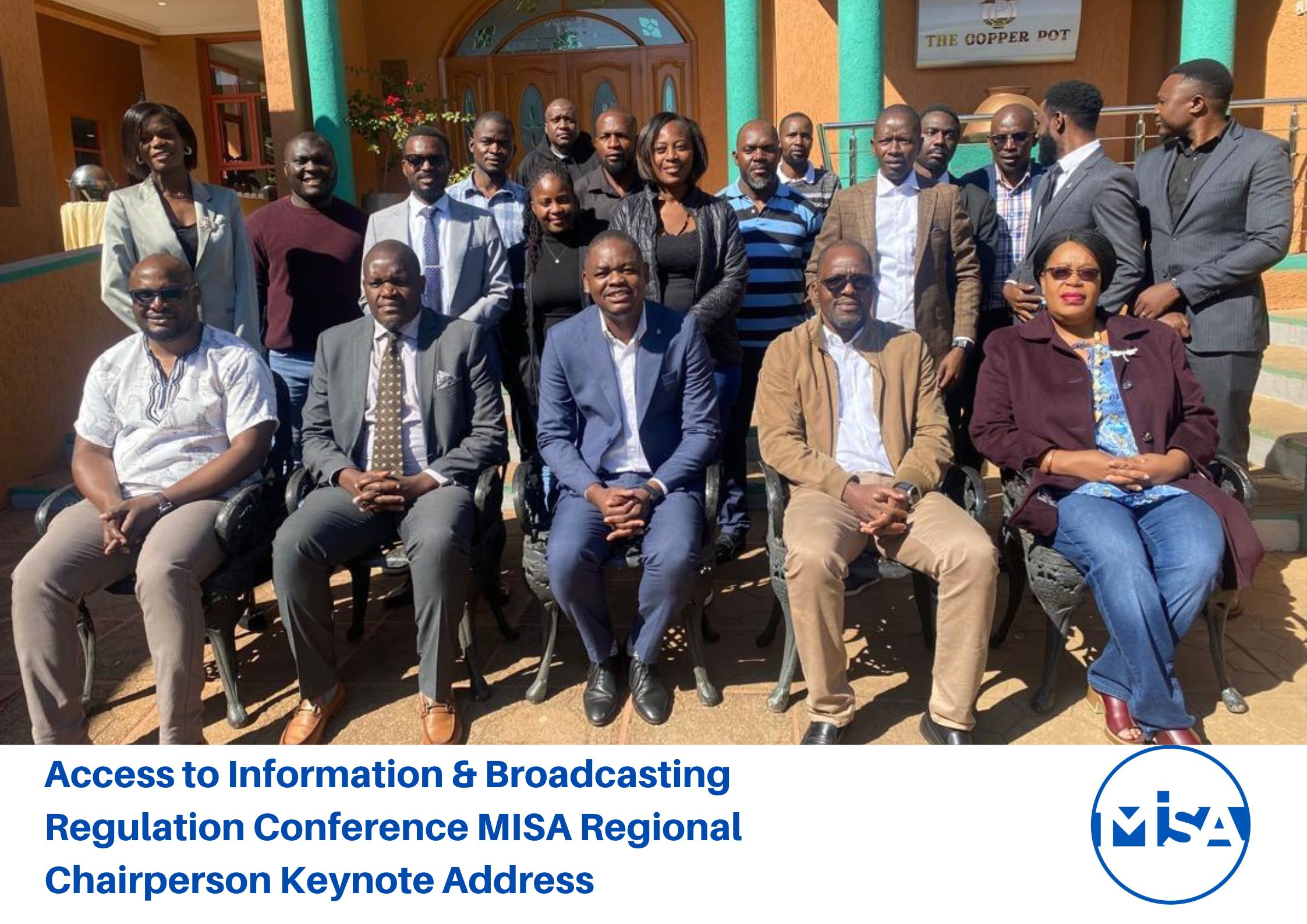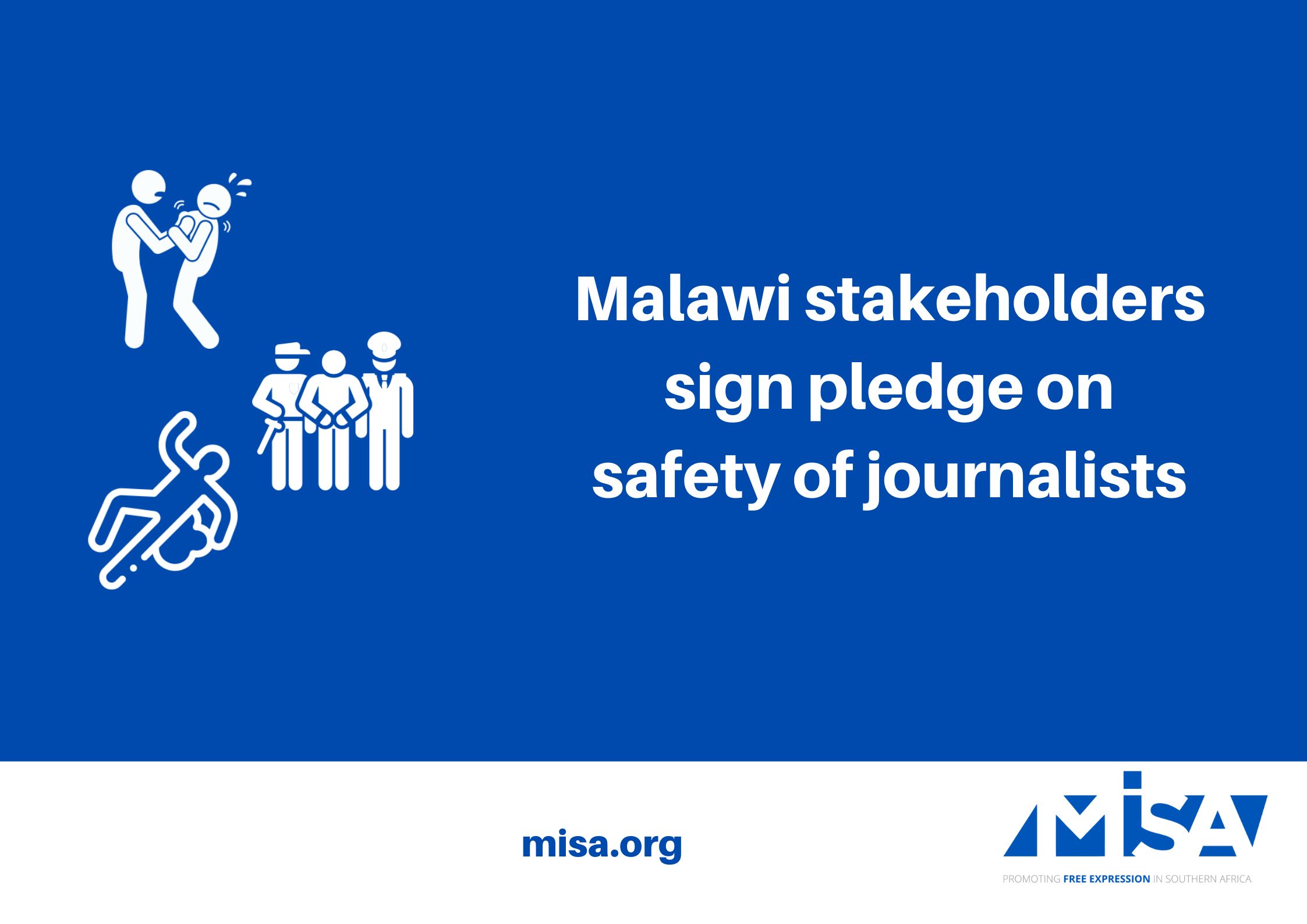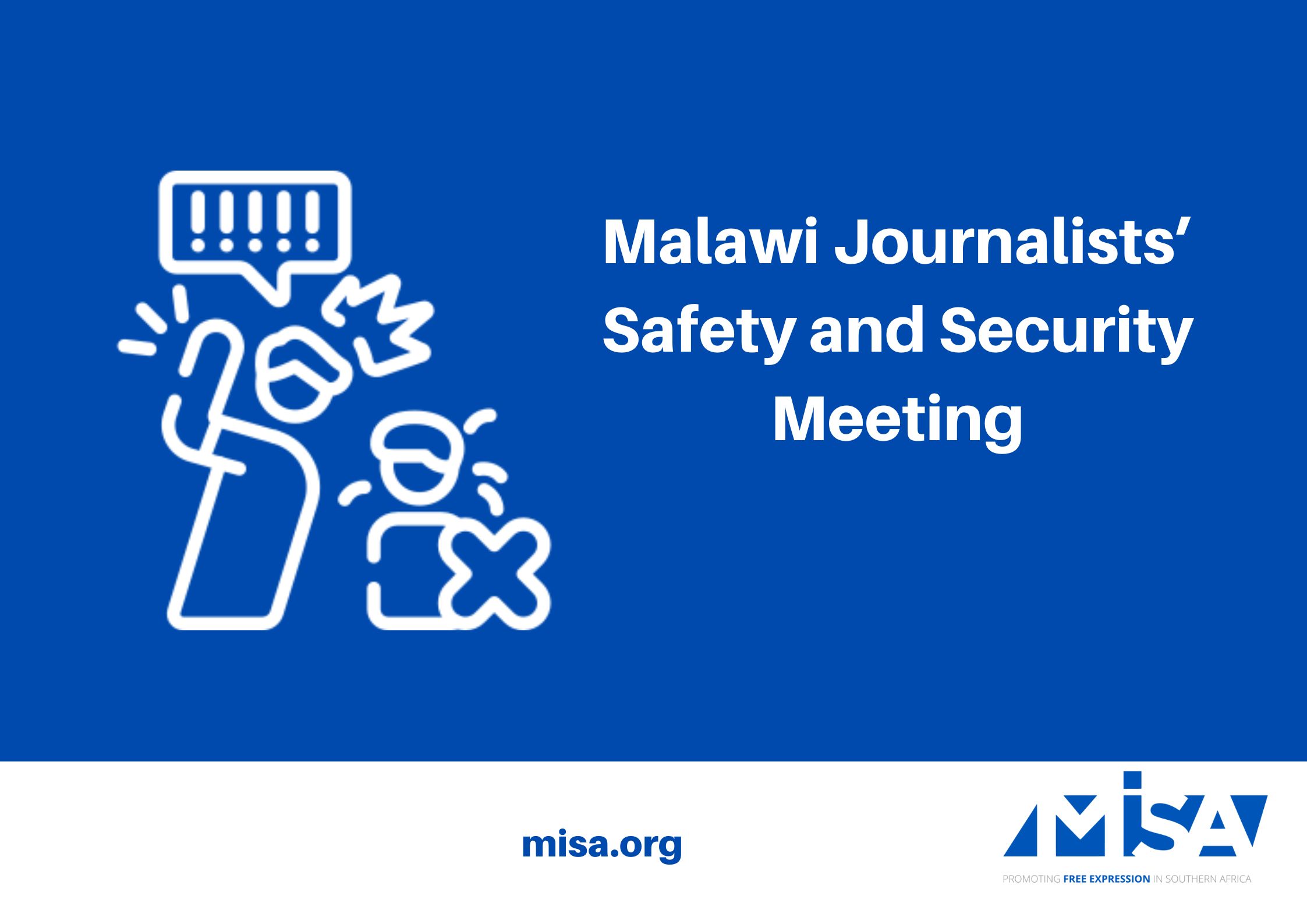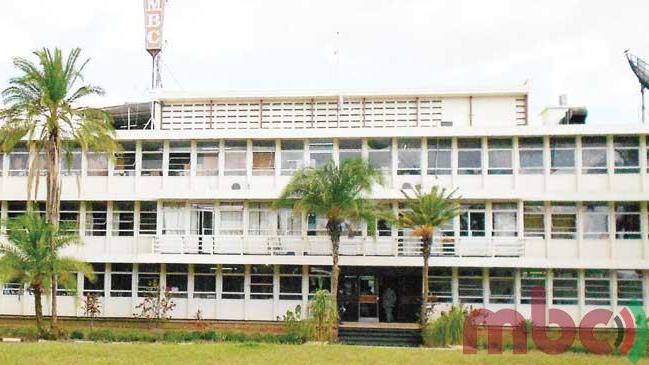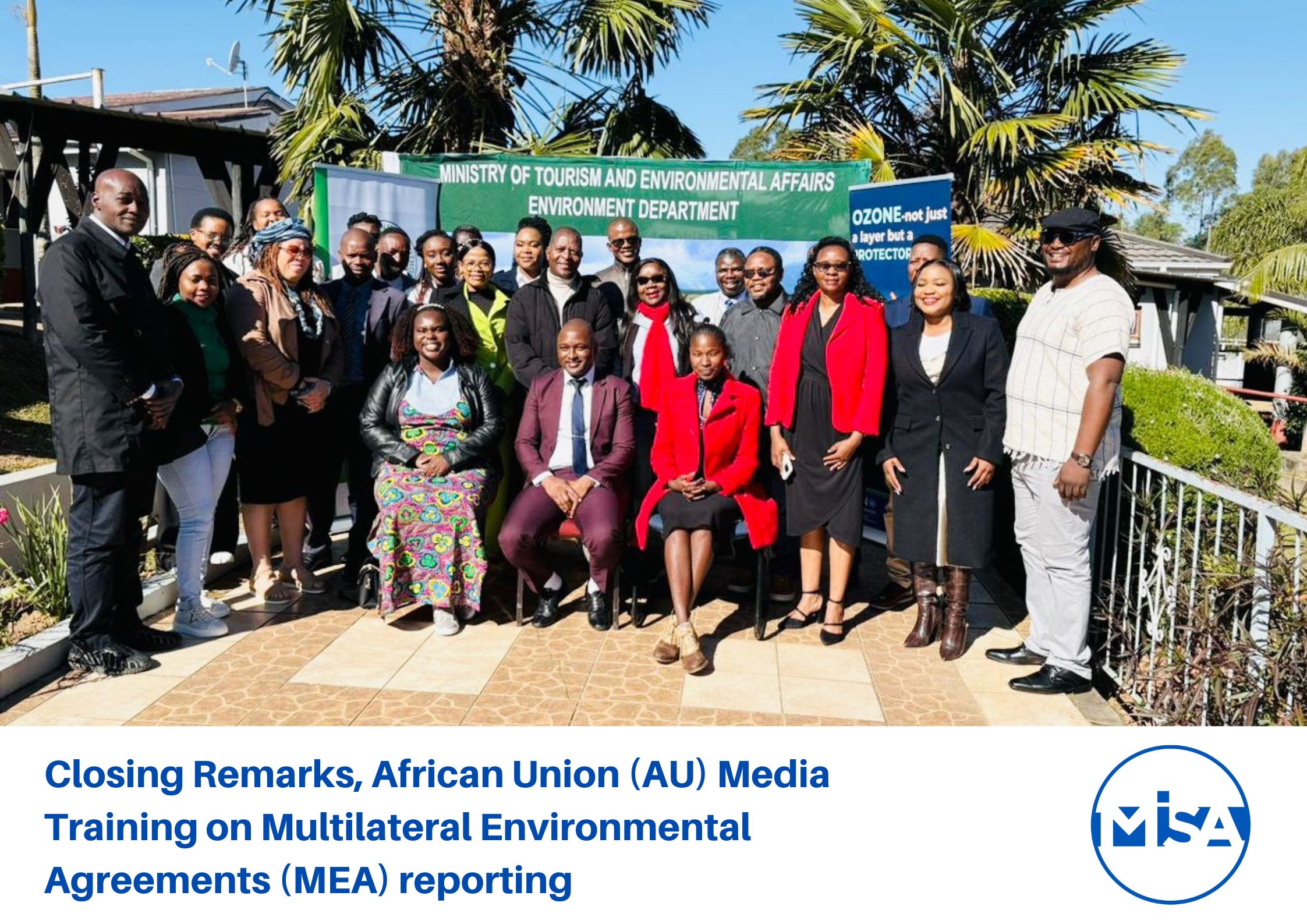Malawi Minister of Information and Digitalisation Moses Kunkuyu says the country’s broadcasting sector must be strong enough to respond to the needs of Malawians.
“The government is ready to lead the process of developing a viable (broadcasting) sector,” he said.
Minister Kunkuyu was speaking during a one-day broadcasting conference in Lilongwe, Malawi on 30 March 2023 convened by MISA Malawi with the support of the MISA Regional Secretariat.
The conference came in the wake of the continued closure of broadcasting stations in Malawi, where the regulatory authority accuses broadcasters of failing to adhere to their obligations.
“[Broadcasting] regulations should expand possibilities in the industry rather than limiting them,” MISA Regional Director Tabani Moyo said at the conference.
Moyo said the broadcasting sector was evolving, with the industry facing new challenges from over the top (OTT) services, which was not the case 20 years ago.
He pointed out that, for example, platforms such as podcasting and streaming had taken a chunk of audiences and there was need for a new framework that took into consideration these changes.
MISA has long argued that the closure of radio and broadcasting stations was arbitrary and called for dialogue between the media sector and the Malawi Communications Regulatory Authority (MACRA).
In 2022, MACRA revoked licences for six radio and four television stations due to delays by the stations to pay licence fees. More than 20 other stations are threatened with revocations.
MACRA Deputy Director of Legal – Consumer Affairs Kelious Mlenga, said the schedule of licensing framework and the Communications Act will be reviewed.
“You should take advantage of the review and actively participate in the process,” he said.
The conference resolved to engage the government, through MACRA, to ensure that broadcast licence fees are charged in Malawi kwacha and not United States dollars.
The meeting noted that the broadcasting sector is growing with digital innovations on the international stage affecting players at the local level. The meeting recommended that broadcasters at the local level should embrace change and adapt to digitisation in their services.
The delegates agreed that local content is critical in developing the local broadcast sector. The absence of relevant content affects the survival and viability of most of the outlets in the sector.
The delegates recommended the development and adoption of an enabling policy to promote content creation to ensure relevant content for both online and offline broadcast outlets.
The Multistakeholder Conference on Broadcasting reform was held under the banner of the Spaces of Solidarity, a grouping of 21 organisations working to support, develop and strengthen resilient media systems in southern Africa.
The conference was part of MISA’s efforts to promote viable and sustainable broadcasting in Malawi.
MISA Regional Communique




